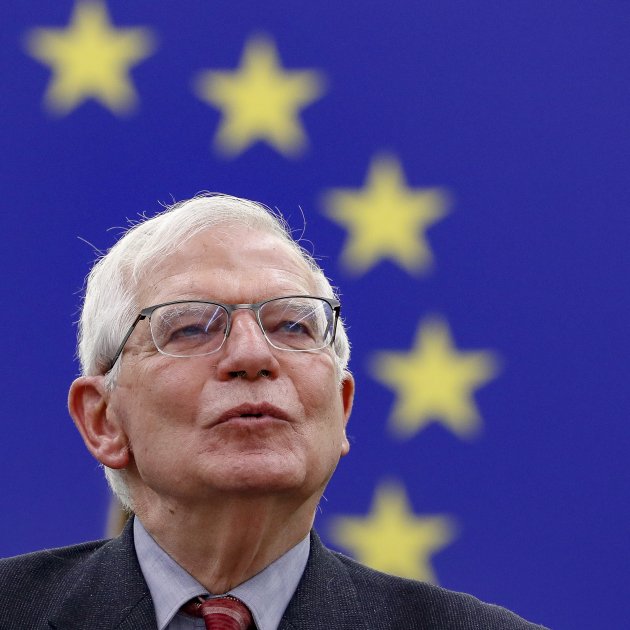An "errant comment" by EU foreign affairs high representative Josep Borrell ruined the chances of a pact between Poland and the United States to send fighter jets to Ukraine, reports the US online newspaper Politico. On Wednesday, Pentagon spokesperson John Kirby rejected a proposal he had been considering for days to transfer Soviet MiG-29 fighter jets owned by Poland to Ukraine in exchange for the Americans supplying Poland with replacement planes. This exchange would have responded to the demands of the government of Volodymyr Zelensky for more material help to combat the Russian invasion in the face of the devastating assault that the country is undergoing. However, the proposal was "not feasible" from a logistical point of view, Kirby argued, and it raised "serious concerns" for the whole of NATO because it would involve flying in an area in dispute with Russia. But according to the US political publication, Borrell's indiscretion also played an important role.
Borrell let it slip to the press
A comment from Borrell sparked a misunderstanding within NATO. Despite the large number of voices in the upper echelons of the US military who were against sending planes from NATO member countries to Ukraine, Politico says that it was not until Borrell revealed the plans to the press that the operation became "impossible." The head of European diplomacy "declared unequivocally to reporters on Feb. 27 that the bloc would provide Ukraine with fighter jets" even though the bloc "had never agreed to this plan." This comment, says the US publication, "shocked" both the Western allies and Ukraine, who preferred to keep it a secret. The issue became more surreal as the Ukrainians took Borrell at his word and publicly announced that they would receive European fighters. "Ukrainian pilots even travelled to Poland to wrap up the deal and bring the planes back over the border," Publico reports. In early March, the Polish president dropped the plan and said his fighters would not fly into Ukrainian airspace.
No one wants to take the first step
More recently, US secretary of state Antony Blinken confirmed that a possible triangular pact was still being studied with Poland and Ukraine, under which the United States would send new F-16s to the Poles in exchange for the MiG jets which would go to Kiev. However, the Americans finally backed down after strong opposition from intelligence services, but left the door open for Poland to send its planes if they so wished, although the US fighters would not be ready until a few months later. In response, Warsaw went a step further and proposed that the US deliver the Polish planes to Kyiv via the American base in Ramstein, Germany. That is where the deal came to an end.
